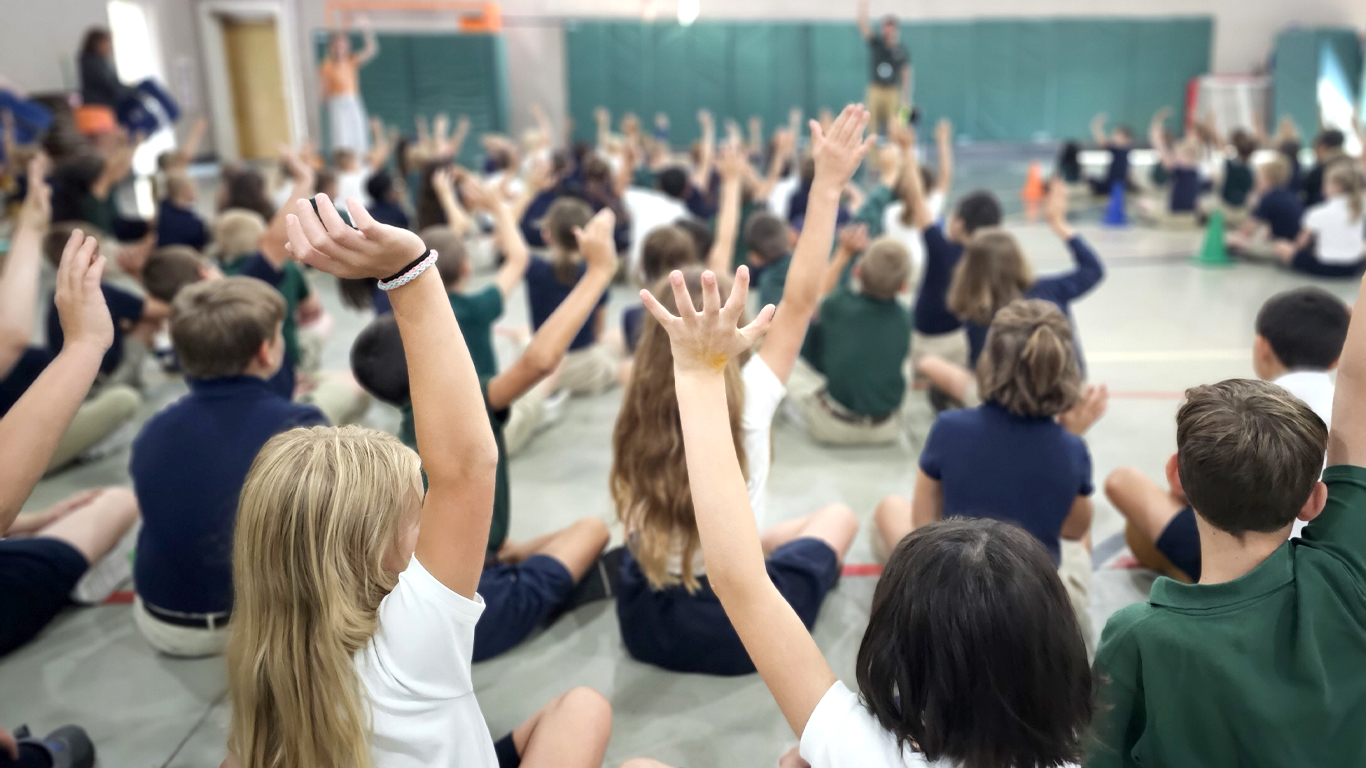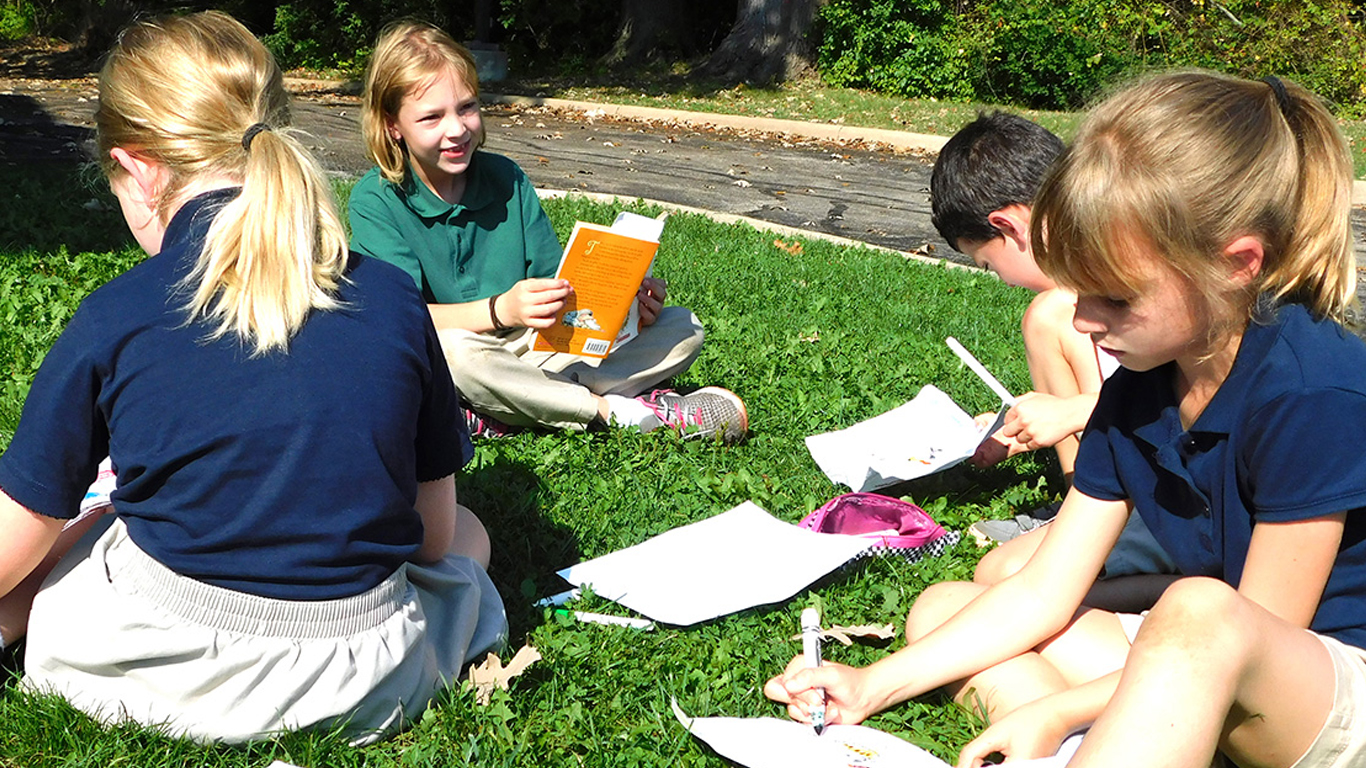
Here is a quiz for you. Just how much time at school do you think your young child should spend in outdoor free play? Twenty minutes? An hour? None at all? Adults often do not ask this question thoughtfully. When I asked a few children what school would be like if they had no recess, the responses included the words sad and torture. This reaction is no commentary on their classroom adventures, only their fundamental understanding that free time and outdoor play is essential.Increasingly, schools around the country are ignoring research and sound developmental practice by reducing (and in some cases eliminating) recess, free time and play in the elementary grades. Reasons? To spend more time on math, to prepare for state-mandated testing, or to reduce conflicts, bullying and injuries that most often occur on the playground. “A central factor contributing to the growing disappearance of children’s spontaneous outdoor play and to the standardization of playgrounds is the prevailing view, even among many professional groups, that free, wild, spontaneous play is frivolous, inconsequential, and irrelevant in the educational program of schools.” (Frost; The Developmental Benefits of Playgrounds, p. 27.)
So is play so important? Isn’t it beneficial to take it out of the school day by replacing it with something more productive… more adult… something measurable? Our school believes (and research supports) that regular free play, especially outdoors, is vital for a child’s healthy development – socially, emotionally and cognitively. Play is what children do beginning in infancy. There is shear joy on a child’s face as she throws a beach ball, runs after or away from a parent, plays “peek-a-boo” or blows bubbles for the first time. Playing dress up with a friend, “house” with a sibling or “school” with a classmate comes naturally to most children. Even pretending to “work” by being a doctor or talking on a play cell phone or taking an order as if at a fast food restaurant is creative play that a child enjoys. Running free on the playground, playing games with rules, climbing on outdoor structures, digging in the sand, playing soccer without a referee – what’s it all worth? Volumes have been written on this topic, but for those that are looking for the bottom line, here it is.There are four basic types of outdoor play. Functional play includes movement for movement’s sake. Examples might include bouncing a ball, running, jumping rope, using the hula hoop, chasing and climbing. Constructive play is when children use objects to build, create cities or forts or paint on the sidewalk. Store-bought kits (such as Legos or K’nex or train sets) are great for this, but often the natural environment is preferred. Our youngest children often play this way in an area protected by trees. The casual bystander may miss the intricate town developed out of small sticks, tiny pebbles, leaves and dirt. Dramatic play provides children the chance to role-play, taking on the persona of another. Pretending to sail on the high seas, using a playhouse as a store, becoming a superhero, marrying one’s 5-year-old classmate, or playing with dolls are examples. Games with rules are another type of play that includes simple or complex rules. Some are created or worked out on the spot, while others are passed down by siblings and friends. I am not including organized sports in this, but instead games like hopscotch, four-square, “spud,” capture the flag or made up games with complex rules that develop over time. (Source: Burris and Boyd, Outdoor Learning and Play.) All four of the types of play are not only natural for children, they are still naturally attractive to many adults.Play creates a natural environment that aids in a child’s development by:
- Helping them negotiate change. A child’s outdoor free play changes often due do new opportunities, classmates’ preferences, varying playmates from day to day and environmental changes such as weather. Many eager children flow through change with excitement and ease. Others discover painful disappointment in unpredictability or in a modification in their preconceived agenda. On the playground, children learn to compromise, see change as an opportunity and discover new territory from others. “There is a time for everything, a season for every activity under the heavens.” (Ecclesiastes. 3:1)
- Developing confidence by providing opportunity for risk-taking, developing physical and social skills and providing opportunity for role-playing and decision-making. As children get older we want them to be able to take steps of faith knowing that their confidence is ultimately in the Lord. “Be strong and courageous. Do not be frightened, and do not be dismayed, for the Lord your God is with you wherever you go.” (Joshua 1:9)
- Growing in social skills. The social world of children is most important and free play allows and even demands social growth that will transfer to a variety of social settings. In play they need to listen to each other, compromise, invite others in, develop a skill of saying “no thanks” and navigate the difficult waters of conflict. During group play, children interact with others without adults making the rules or playing referee. They figure out that trust is valued and being honest and fair gains the trust of peers and adults alike. “Love your neighbor as yourself…” (Matthew 22:39)
- Encouraging creativity. Free play involves problem-solving, constructing and analyzing. By its very nature, play encourages the creation of games, rules, roles, drama, expression through art and imagination. As children get older, their play becomes increasingly sophisticated and symbolic. This, along with play’s healthy exercise, produces increased cognitive ability. “In the beginning, God created…” (Genesis 1:1)
- Embracing joy. At our school, joy is serious business. Learning can be fun (but isn’t always) and school should provide a balance of reality that allows for shear enjoyment. Thus, our teachers will from time to time say things like, “Kids, the sun is finally out! Let’s drop everything and spend fifteen minutes outdoors enjoying God’s provision!” Many years ago I had a father proudly tell me that his 14 year old son had grown up so far without “all that child’s play” and instead focusing on more adult behaviors. A year later the boy attempted suicide. To take away regular free play is to rob a child of balance. “Let us rejoice today and be glad.” (Psalm 118:24)
- Promoting healthy exercise. According to the Center for Disease Control, childhood obesity has more than doubled in children and quadrupled in adolescents in the past thirty years. More than one third of our children and adolescents are overweight or obese! The health issues are enormous and lifestyle habits begin in childhood. “Do you not know that you are God’s temple and that God’s spirit dwells within you?” (I Corinthians 3:16) “You were bought with a price. So glorify God with your body.” (I Corinthians 6:2







